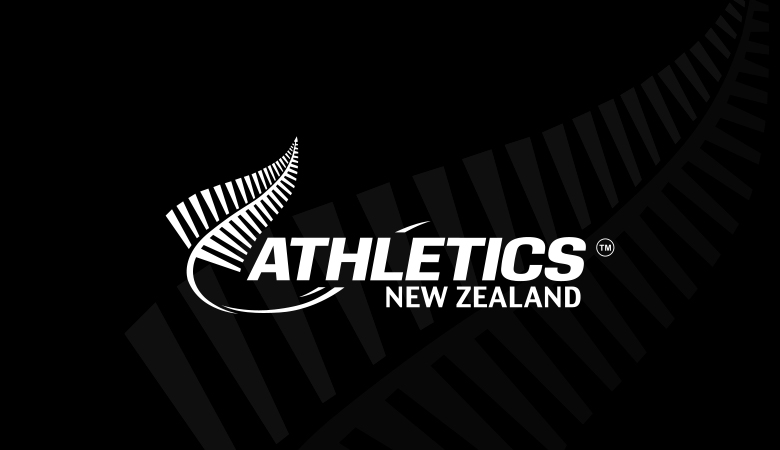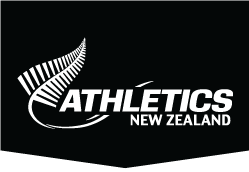News & Updates
Lance Smith - inaugural winner of the Arthur Eustace Award for Coaching

Southland-based coach Lance Smith is the inaugural winner of the Arthur Eustace Award for Coaching. Steve Landells chats to the septuagenarian coach to find out more about his coaching journey.
Widely regarded as the world’s greatest athletics coach, American Dan Pfaff commonly describes himself as a “generalist” due to his ability to coach almost any athletics discipline.
New Zealand has churned out coaches down the years who could also fit the same generalist description, but few currently encapsulate this term better than Invercargill-based coach, Lance Smith, who coaches distance, sprints and the jumps with consistent success.
Rewarded earlier this year by receiving the inaugural Arthur Eustace Award for Coaching – which recognises behaviours that support Athletics NZ’s beliefs around coaching – the accolade is welcome recognition for the 77-year-old retired copywriter after almost 40 years in the sport.
Not that modest Lance believes he was necessarily the most deserving recipient of the prestigious new prize.
“It was a hell of a surprise because I nominated Russ Hoggard (the 89-year-old coach to New Zealand 400m hurdles record holder Portia Bing) because I really thought he deserved it,” he explains.
“It was a thrill, though, to receive recognition from your peers. But it is not so much the recognition but more the credibility you receive from winning an award, which is the most pleasing aspect. I may have an IAAF Academy Level V coaching certificate but this means nothing because people have never seen it, this award is more visible.”
Born and raised in Taumarunui in King Country, Lance, a former representative basketballer, first engaged in running at the age of 38 as a means of keeping fit.
At that time based on Auckland’s North Shore, he was invited to join his local club Calliope Harriers, and on the back of this he quickly engaged in masters competition.
Starting out as a distance runner, he later branched out to compete in the 400m and went on to win national masters title in the high jump and triple jump.
“I went to Calliope as a runner but developed a love and aptitude of all events, and, jumping specifically,” he explains. “This has since been echoed in my coaching because I now coach sprints, distance and the long jump, triple jump and high jump.”
Around 35 years ago Lance’s daughter – who was competing in the unusual combination of discus and cross country – asked for some advice and he was happy to help out. A distance runner then asked for coaching advice and keen to study more to expand his knowledge base he was quickly sucked into the world of coaching.
Around 20 years he says he become more serious as a coach as the quality of his athlete’s developed. He guided sprinter April Brough to the fifth in the 200m final at the 2001 World U18 Championships in Hungary and coaching at the time out of Papakura Harriers in South Auckland he also worked with future New Zealand 200m and 400m champion Louise Jones during her formative years.
“It has been an interesting journey,” he explains. “I started out as a distance coach and then along came a kid who was a good sprinter, so I thought I needed to learn more about sprinting. Then one of the kids said they’d like to try the high jump, so I had to learn more about another event.
“What I learned as a distance coach added to the endurance of the sprinters and what I learned coaching sprinters helped with the speed of the distance runners. Meanwhile, the biomechanics and plyometrics I learned coaching jumpers helped sprints and endurance.”
In 2002, Lance retired from his role as a copywriter in Auckland and relocated to Invercargill, where for the past 17 years he has played a major part in inspiring a whole generation of athletes in the region and beyond.
Among the athletes he has coached include former national mountain running champion Jack Beaumont, former Commonwealth Youth Games triple jump silver medallist Greer Alsop, former national U20 triple jump champion Atipa Mabonga, two-time New Zealand secondary schools 1500m gold medallist Jordan Rackham and 2019 World University Games distance runner Hannah Miller – all of whom went on to study in America.
It was also in 2002 when Lance sat an IAAF Academy Level V Elite coaching course in Australia – which was to prove a pivotal moment in his coach development.
Required to fulfil a six-month period of study to complete the course he selected the topic of self-determination and out of this formed the central tenet of his coaching philosophy.
“I’m very much athlete-led,” explains Lance. “Most coaches have an understanding of the training requirements but for me it is not what you coach, but how you coach. My coaching is based on the premise that I am the servant of the squad – not the master. The athlete and the coach are the team but the athlete is the team captain.
“I don’t coach athletes, I coach people. I believe athletes own their sport and with ownership comes responsibility, and if you own something you value it more.”
Keeping with this philosophy he does not rate coaching an athlete to a World University Games any more successful than coaching an athlete who quit the sport at 15 but emerged out of the experience a better person.
He cites one such cherished memory at a road race some years as best encapsulating his motivation for coaching.
“I remember the grandmother of an athlete, who had experienced emotional and intellectual difficulties, was in tears of joy on the side of the road saying how much that athlete had improved because of athletics. She said he had learned the importance of commitment, time management all the things you require as an athlete which had helped his academic development.
“For me moments such as this are pivotal in my coaching career. It really comes down to the fact that although much of the sport is about winning, as far as I’m concerned winning is not necessarily about coming first. If, in your time as an athlete, you learn about time-management, the importance of commitment, working hard and getting on with your peers, then, in my mind, you have won.”
Coaching a large group of athletes in Invercargill, several athletes in Dunedin and even an Irish mountain running who discovered Lance after reading an article on Jack Beaumont – life can be challenging coaching at Surrey Park located at the bottom tip of New Zealand’s South Island.
“We have an all-weather track and jumps pit but often the weather is too cold to do anything too highly specialised technically,” he admits. “If it is cold and wet you often have to think outside the square, so a technical session might be heading to the grandstand to do a session on the stairs. You have to prepare yourself for every type of weather situation down here.”
Lance also admits after school age the area loses many of its athletes as they start university life in larger New Zealand cities or in the US.
Yet for Lance, there is no trace of bitterness and staying true to his philosophy he never refers to athletes as “my athletes” and is instead more than happy to have simply played a part in their athletics education.
“Greer (Alsop) now works with Terry Lomax in Christchurch and I have no problem with this because you cannot coach a technical event by email,” he explains. “The fact is, I’m happy to know that Terry has an athlete with a good grounding in the sport. The same goes for many other athletes I’ve worked with like Hannah (Miller), Atipa and Jack, who are currently coached by others at their US universities.”
